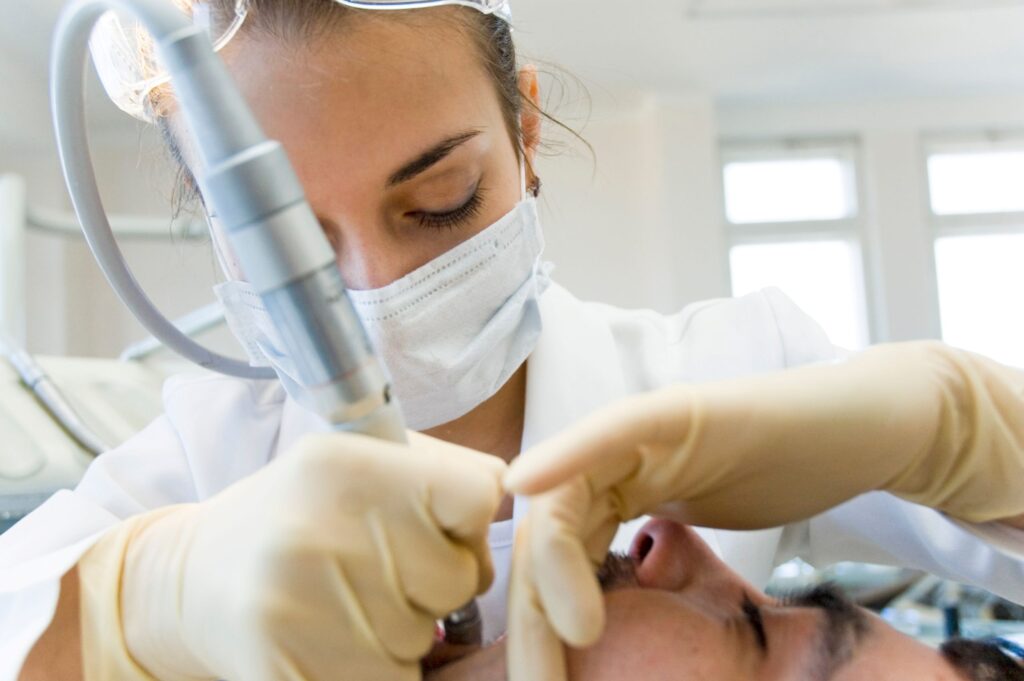Embarking on the journey of dental sedation is a meaningful step that has the potential to revolutionize your dental experience, especially if you have struggled with dental anxiety or are preparing for complex oral procedures.
Whether you’re thinking about the wonders of sedation dentistry in Gibsonton or are simply intrigued by its utilization, the following blog can answer all of your questions.
What is Sedation Dentistry?
When it comes to reducing anxiety during dental visits, sedation dentistry is similar to having a consoling friend hold your hand. It ultimately comes down to giving patients medication to help them unwind and feel comfortable during their appointments.
Though this branch of care is often referred to as “sleep dentistry,” you won’t necessarily be unconscious during your treatment. Rather, it depends on the level of sedation that you receive. Mild sedation induces a sense of tranquility and prevents you from feeling any discomfort while remaining conscious. With moderate sedation, you’ll also feel relaxed and may end up nodding off towards the end of the procedure.
As a result, it’s highly recommended that you have someone take you to and from the clinic.
Who Needs Sedation Dentistry?
Sedation dentistry is designed to aid a wide variety of individuals. It is especially advantageous for individuals who deal with any of the following obstacles:
- Dental Anxiety: Individuals who may experience an increased level of apprehension or unease when seeking dental care.
- Overactive Gag Reflex: Dental procedures may be hindered by a hypersensitive gag reflex experienced by some individuals.
- Difficulty Sitting Still: Sedation can help patients who have trouble staying still while receiving dental work feel more comfortable.
- Need Complex Dental Work: Sedation is frequently utilized for patients undergoing extensive dental procedures or oral surgeries.
Not everyone is an ideal candidate for this treatment. You will need to speak with your dentist about acquiring sedation dentistry near you before you can undergo any form of dental work.
What Types of Sedation are Used in Dentistry?
Several types of sedation are used in dentistry, depending on the treatment and the patient’s needs:
- Nitrous Oxide: Nitrous oxide is commonly known as “laughing gas,” and it is softly inhaled by the patient through a mask. It is appropriate for a variety of dental operations since it induces a joyful, light state of relaxation.
- Oral Conscious Sedation: Given as a pill or liquid, this type of sedation makes the patient feel more relaxed but still keeps them conscious and able to respond to verbal cues.
- Intravenous (IV) Sedation: When given intravenously, IV sedation gives our dental team exact control over the degree of sedation, ensuring your maximum comfort throughout your dental treatment. More complex or prolonged dental procedures are usually the exception to this rule.
Is General Anesthesia Ever Used in Dentistry?
During typical dental treatments, patients are only sometimes put under general anesthesia, which is a process that puts patients to sleep. The removal of wisdom teeth that have canals that are wholly or partially blocked, as well as other sophisticated reconstructive treatments, are examples of the types of oral surgery that often need an exception. For advanced oral surgery in Gibsonton, our skilled team is here to make it convenient for you.
The Before and After of the Process
What’s It Like Before Sedation Dentistry?
Before your sedation dentistry consultation, there are a few things you must do. Your dentist may give you particular directions to follow, such as fasting for a set period of time prior to your consultation. This is particularly important if you are receiving conscious sedation via IV or oral means.
Additionally, if you are having a certain kind of sedation at the dentist, you must have a responsible adult accompany you both to and from the appointment. We’ve included this extra safety precaution because sedation can make you feel drowsy.
Your dentist will provide you all the information you require in advance so that you are prepared for anything. Our Gibsonton office is the easily accessible option for top-notch care if you require oral surgery in the surrounding area.
What Happens Post Successful Sedation Dentistry?
It’s common to experience mild memory loss or to feel a bit drowsy following your sedation dental treatment. It has a momentary sedative effect.
You really need a reliable caregiver to transport you home, especially if you were given a deeper sedation. Fortunately, most people recover fast, so getting back to your regular activities should not be a problem.
To summarize, sedation dentistry ensures that you have the most relaxed and stress-free dental experience possible, both before and after the procedure. At all times, our top priorities are your physical and mental well-being.
Your Comfort, Our Priority: Orange Blossom Oral Surgery
Sedation dentistry is a wonderful option for giving patients a peaceful and stress-free dental experience. Regardless of the complexity of your dental needs, from straightforward procedures to more intricate oral surgery, personalized sedation dentistry prioritizes your comfort and oral health.
Therefore, whether you are actively seeking sedation dentistry in Gibsonton or are just thinking about its role in the context of oral surgery nearby, it is important to understand that you have the ability to make your dental visits pleasant and calming experiences that will improve your overall oral health and well-being.
Our goal at Orange Blossom Oral Surgery is to make sure you have comfort and peace of mind during your dental journey. Your smile is our priority, and we’re here to make it shine brightly.


